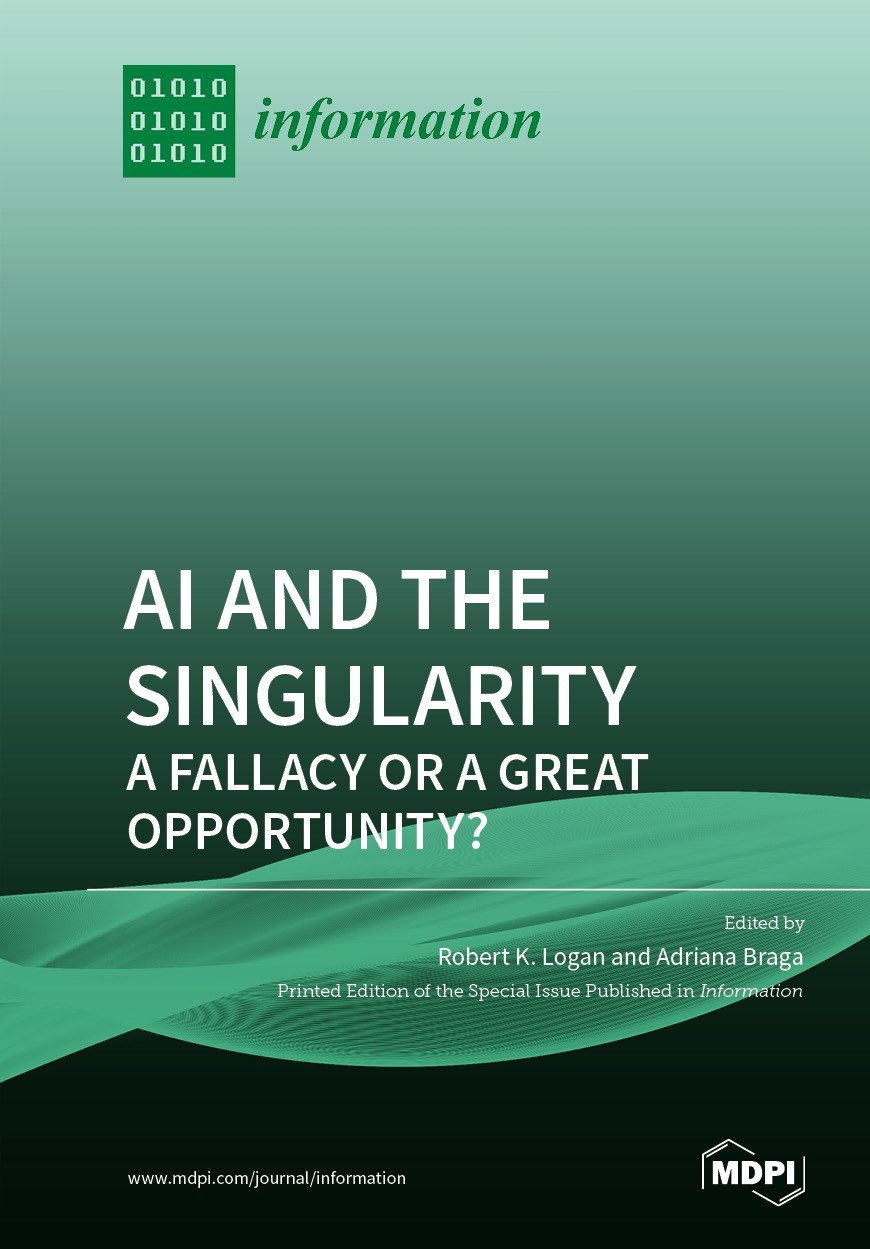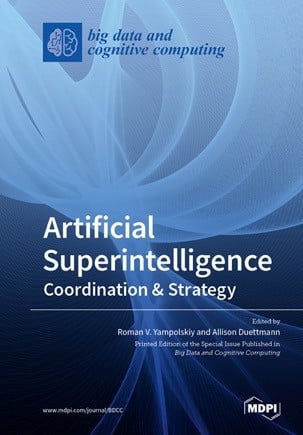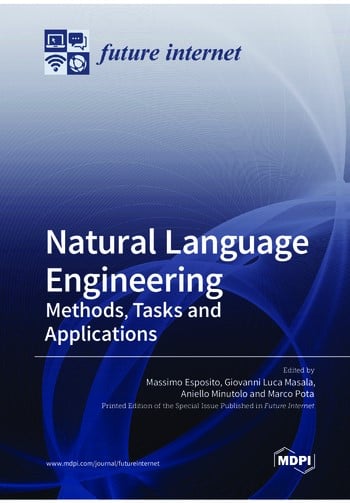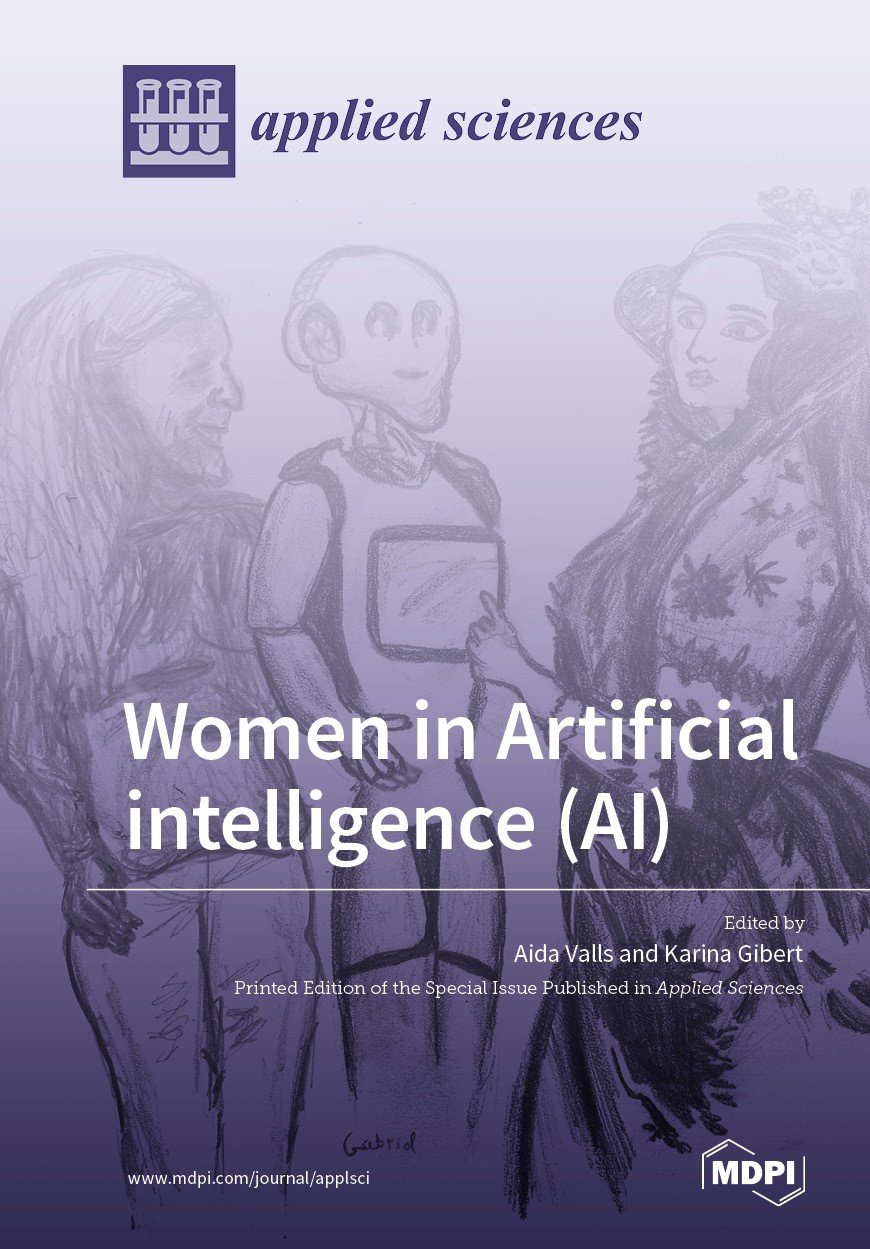
Journal Menu
► ▼ Journal Menu-
- Education Sciences Home
- Aims & Scope
- Editorial Board
- Topical Advisory Panel
- Instructions for Authors
- Special Issues
- Topics
- Sections & Collections
- Article Processing Charge
- Indexing & Archiving
- Editor’s Choice Articles
- Most Cited & Viewed
- Journal Statistics
- Journal History
- Journal Awards
- Society Collaborations
- Conferences
- Editorial Office
Journal Browser
► ▼ Journal BrowserNeed Help?
Announcements
30 June 2023
Topics Webinar | AI Chatbots: Threat or Opportunity? II, Held on 10 July 2023

On 10 July 2023, MDPI and the journals AI, Algorithms, Big Data and Cognitive Computing, Computers, Educational Sciences, Future Internet, Informatics, Information, Languages and Publications organized the webinar AI Chatbots: Threat or Opportunity? II.
Webinar summary from Dr. Hossein Hassani, the webinar Chair:
The highly anticipated webinar AI Chatbots: Threat or Opportunity?, provided valuable insights on a crucial subject. The event shed light on the various advantages of AI chatbots, such as enhanced learning experience, scalability and accessibility, continuous availability, and consistency in teaching. it also addressed concerning issues, including the lack of human interaction, limited adaptability, technical limitations, and ethical considerations.
During the webinar, the broader implications of these advancements, particularly in relation to the SDG 4 goal of education for all, were discussed. The participants recognized the rapid progress of technology in developed countries while acknowledging the significant disparities in access to the internet and electricity in regions like Africa and Asia, as emphasized in SDG 4 and SDG 7. It was emphasized that taking appropriate action and addressing the existing gaps in SDGs are vital to ensuring that no one is left behind.
I would like to express my sincere gratitude to the panellists, Dr. Chung Kwan Lo and Dr. Jaime Cárdenas-García, my colleagues at MDPI, Marisa Zalabak for the great comments and suggestions, and the various MDPI journals for their invaluable support and for driving this timely and important initiative.
Please note that this webinar is associated with the Topic “AI Chatbots: Threat or Opportunity?”. The abstract submission deadline is 29 February 2024.
In addition, the first webinar of the series was held on 27 June 2023, 3 p.m. (CEST). For more information, or to watch the recording of the first webinar, please visit the webpage via the following link: https://www.mdpi.com/about/announcements/6047.
You can watch the recorded webinar at the following link: https://youtu.be/X5oTzdG5z70.
Webinar Chair and Keynote Speakers:
- Hossein Hassani, Webster Vienna Private University, Vienna, Austria;
- Chung Kwan Lo, Department of Mathematics and Information Technology, The Education University of Hong Kong, Hong Kong SAR, China;
- Jaime F. Cárdenas-García, Department of Mechanical Engineering, University of Maryland, Baltimore County, Baltimore, United States.
28 June 2023
2022 Impact Factors for MDPI Journals
The 2022 citation metrics have been released in the Journal Citation Reports (JCR), and we’re pleased to announce the following results for MDPI journals:

We are thrilled to announce that 90% of our ranked MDPI journals, specifically 86 out of 96 (captured in the table below), are performing above average in Q1 or Q2. This year, Clarivate has expanded its Impact Factor (IF) awards to include journals in the Emerging Sources Citation Index (ESCI) and the Arts and Humanities Citation Index (AHCI), providing greater transparency for the full set of journals indexed in the Web of Science Core Collection. As a result, 111 of MDPI journals have received their first IF in 2023, with 37 journals surpassing an IF of 3.0. In total, 208 MDPI journals have been honored with an IF.
Clarivate explains that by "expanding the coverage but holding to highly selective standards, the [Impact Factor] is now a reliable indicator of trustworthiness, as well as a measure of scholarly impact, at the journal level."
Please visit our blog post where we discuss the release of the latest citation metrics with our Indexing Manager, Dr. Constanze Schelhorn, to find out what's different this time around and how to make use of different metrics available.
| Journal | Impact Factor | Rank Quartile | Category |
| Vaccines | 7.8 | Q1 | Immunology |
| Medicine, Research & Experimental | |||
| Antioxidants | 7.0 | Q1 | Food Science & Technology |
| Biochemistry & Molecular Biology | |||
| Chemistry, Medicinal | |||
| Cells | 6.0 | Q2 | Cell Biology |
| Nutrients | 5.9 | Q1 | Nutrition & Dietetics |
| International Journal of Molecular Sciences | 5.6 | Q1 | Biochemistry & Molecular Biology |
| Q2 | Chemistry, Multidisciplinary | ||
| Journal of Theoretical and Applied Electronic Commerce Research | 5.6 | Q2 | Business |
| Biomolecules | 5.5 | Q1 | Biochemistry & Molecular Biology |
| Biosensors | 5.4 | Q1 | Chemistry, Analytical |
| Instruments & Instrumentation | |||
| Q2 | Nanoscience & Nanotechnology | ||
| Fractal and Fractional | 5.4 | Q1 | Mathematics, Interdisciplinary Applications |
| Marine Drugs | 5.4 | Q1 | Chemistry, Medicinal |
| Pharmacology & Pharmacy | |||
| Pharmaceutics | 5.4 | Q1 | Pharmacology & Pharmacy |
| Nanomaterials | 5.3 | Q1 | Physics, Applied |
| Q2 | Chemistry, Multidisciplinary | ||
| Materials Science, Multidisciplinary | |||
| Nanoscience & Nanotechnology | |||
| Cancers | 5.2 | Q2 | Oncology |
| Foods | 5.2 | Q1 | Food Science & Technology |
| Polymers | 5.0 | Q1 | Polymer Science |
| Remote Sensing | 5.0 | Q1 | Geosciences, Multidisciplinary |
| Q2 | Remote Sensing | ||
| Imaging Science & Photographic Technology | |||
| Environmental Sciences | |||
| Antibiotics | 4.8 | Q1 | Pharmacology & Pharmacy |
| Q2 | Infectious Diseases | ||
| Drones | 4.8 | Q2 | Remote Sensing |
| Journal of Functional Biomaterials | 4.8 | Q2 | Engineering, Biomedical |
| Materials Science, Biomaterials | |||
| Biomedicines | 4.7 | Q1 | Pharmacology & Pharmacy |
| Q2 | Biochemistry & Molecular Biology | ||
| Medicine, Research & Experimental | |||
| Journal of Fungi | 4.7 | Q2 | Mycology |
| Microbiology | |||
| Viruses | 4.7 | Q2 | Virology |
| Bioengineering | 4.6 | Q2 | Engineering, Biomedical |
| Gels | 4.6 | Q1 | Polymer Science |
| Molecules | 4.6 | Q2 | Chemistry, Multidisciplinary |
| Biochemistry & Molecular Biology | |||
| Pharmaceuticals | 4.6 | Q2 | Pharmacology & Pharmacy |
| Chemistry, Medicinal | |||
| Toxics | 4.6 | Q1 | Toxicology |
| Q2 | Environmental Sciences | ||
| Biomimetics | 4.5 | Q1 | Engineering, Multidisciplinary |
| Q2 | Materials Science, Biomaterials | ||
| Microorganisms | 4.5 | Q2 | Microbiology |
| Plants | 4.5 | Q1 | Plant Sciences |
| Biology | 4.2 | Q2 | Biology |
| Chemosensors | 4.2 | Q2 | Instruments & Instrumentation |
| Chemistry, Analytical | |||
| Electrochemistry | |||
| Membranes | 4.2 | Q2 | Engineering, Chemical |
| Materials Science, Multidisciplinary | |||
| Chemistry, Physical | |||
| Polymer Science | |||
| Toxins | 4.2 | Q1 | Toxicology |
| Q2 | Food Science & Technology | ||
| Metabolites | 4.2 | Q2 | Biochemistry & Molecular Biology |
| Batteries | 4.0 | Q2 | Electrochemistry |
| Materials Science, Multidisciplinary | |||
| Q3 | Energy & Fuels | ||
| Catalysts | 3.9 | Q2 | Chemistry, Physical |
| Journal of Clinical Medicine | 3.9 | Q2 | Medicine, General & Internal |
| Land | 3.9 | Q2 | Environmental Studies |
| Sensors | 3.9 | Q2 | Instruments & Instrumentation |
| Chemistry, Analytical | |||
| Engineering, Electrical & Electronic | |||
| Sustainability | 3.9 | Q2 | Environmental Sciences (SCIE) |
| Environmental Studies (SSCI) | |||
| Q3 | Green & Sustainable Science & Technology (SCIE) | ||
| Green & Sustainable Science & Technology (SSCI) | |||
| Buildings | 3.8 | Q2 | Construction & Building Technology |
| Engineering, Civil | |||
| Agronomy | 3.7 | Q1 | Agronomy |
| Q2 | Plant Sciences | ||
| Fermentation | 3.7 | Q2 | Biotechnology & Applied Microbiology |
| Pathogens | 3.7 | Q2 | Microbiology |
| Agriculture | 3.6 | Q1 | Agronomy |
| Diagnostics | 3.6 | Q2 | Medicine, General & Internal |
| Genes | 3.5 | Q2 | Genetics & Heredity |
| Journal of Intelligence | 3.5 | Q2 | Psychology, Multidisciplinary |
| Lubricants | 3.5 | Q2 | Engineering, Mechanical |
| Processes | 3.5 | Q2 | Engineering, Chemical |
| Coatings | 3.4 | Q2 | Materials Science, Coatings & Films |
| Physics, Applied | |||
| Q3 | Materials Science, Multidisciplinary | ||
| ISPRS International Journal of Geo-Information | 3.4 | Q2 | Geography, Physical |
| Q3 | Computer Science, Information Systems | ||
| Remote Sensing | |||
| Materials | 3.4 | Q2 | Metallurgy & Metallurgical Engineering |
| Physics, Applied | |||
| Physics, Condensed Matter | |||
| Q3 | Materials Science, Multidisciplinary | ||
| Chemistry, Physical | |||
| Micromachines | 3.4 | Q2 | Instruments & Instrumentation |
| Physics, Applied | |||
| Chemistry, Analytical | |||
| Q3 | Nanoscience & Nanotechnology | ||
| Water | 3.4 | Q2 | Water Resources |
| Environmental Sciences | |||
| Brain Sciences | 3.3 | Q3 | Neurosciences |
| Energies | 3.2 | Q3 | Energy & Fuels |
| Fire | 3.2 | Q1 | Forestry |
| Q2 | Ecology | ||
| Life | 3.2 | Q2 | Biology |
| Current Issues in Molecular Biology | 3.1 | Q3 | Biochemistry & Molecular Biology |
| Horticulturae | 3.1 | Q1 | Horticulture |
| Animals | 3.0 | Q1 | Agriculture, Dairy & Animal Science |
| Veterinary Sciences | |||
| Insects | 3.0 | Q1 | Entomology |
| Atmosphere | 2.9 | Q3 | Meteorology & Atmospheric Sciences |
| Environmental Sciences | |||
| Electronics | 2.9 | Q2 | Engineering, Electrical & Electronic |
| Physics, Applied | |||
| Q3 | Computer Science, Information Systems | ||
| Forests | 2.9 | Q1 | Forestry |
| Inorganics | 2.9 | Q2 | Chemistry, Inorganic & Nuclear |
| Journal of Marine Science and Engineering | 2.9 | Q1 | Engineering, Marine |
| Q2 | Oceanography | ||
| Engineering, Ocean | |||
| Metals | 2.9 | Q2 | Metallurgy & Metallurgical Engineering |
| Q3 | Materials Science, Multidisciplinary | ||
| Tropical Medicine and Infectious Disease | 2.9 | Q2 | Tropical Medicine |
| Parasitology | |||
| Q3 | Infectious Diseases | ||
| Universe | 2.9 | Q2 | Astronomy & Astrophysics |
| Physics, Particles & Fields | |||
| Healthcare | 2.8 | Q2 | Health Policy & Services (SSCI) |
| Q3 | Health Care Sciences & Services (SCIE) | ||
| Applied Sciences | 2.7 | Q2 | Engineering, Multidisciplinary |
| Physics, Applied | |||
| Q3 | Chemistry, Multidisciplinary | ||
| Materials Science, Multidisciplinary | |||
| Crystals | 2.7 | Q2 | Crystallography |
| Q3 | Materials Science, Multidisciplinary | ||
| Entropy | 2.7 | Q2 | Physics, Multidisciplinary |
| Magnetochemistry | 2.7 | Q2 | Chemistry, Inorganic & Nuclear |
| Q3 | Chemistry, Physical | ||
| Materials Science, Multidisciplinary | |||
| Symmetry | 2.7 | Q2 | Multidisciplinary Sciences |
| Actuators | 2.6 | Q2 | Instruments & Instrumentation |
| Engineering, Mechanical | |||
| Aerospace | 2.6 | Q1 | Engineering, Aerospace |
| Behavioral Sciences | 2.6 | Q2 | Psychology, Multidisciplinary |
| Current Oncology | 2.6 | Q3 | Oncology |
| Machines | 2.6 | Q2 | Engineering, Mechanical |
| Q3 | Engineering, Electrical & Electronic | ||
| Medicina | 2.6 | Q3 | Medicine, General & Internal |
| Separations | 2.6 | Q3 | Chemistry, Analytical |
| Minerals | 2.5 | Q2 | Mining & Mineral Processing |
| Mineralogy | |||
| Geochemistry & Geophysics | |||
| Children | 2.4 | Q2 | Pediatrics |
| Diversity | 2.4 | Q2 | Biodiversity Conservation |
| Q3 | Ecology | ||
| Journal of Cardiovascular Development and Disease | 2.4 | Q3 | Cardiac & Cardiovascular Systems |
| Mathematics | 2.4 | Q1 | Mathematics |
| Photonics | 2.4 | Q3 | Optics |
| Veterinary Sciences | 2.4 | Q1 | Veterinary Sciences |
| Fishes | 2.3 | Q2 | Marine & Freshwater Biology |
| Fisheries | |||
| Axioms | 2.0 | Q2 | Mathematics, Applied |
| Systems | 1.9 | Q2 | Social Sciences, Interdisciplinary |
| Tomography | 1.9 | Q3 | Radiology, Nuclear Medicine & Medical Imaging |
Note: The Journal of Personalized Medicine's Impact Factor was omitted in the original release and will be assigned separately. Please find the data on the journal webpage in due course.
Source: 2022 Journal Impact Factors, Journal Citation Reports TM (Clarivate, 2023)
27 June 2023
Topic AI Chatbots: Threat or Opportunity?

ChatGPT is a language model launched by OpenAI in November 2022. It has many uses, including chatbots, text summarization, language translation, and content creation. Educators view it as potentially concerning, as it offers powerful opportunities for students to produce work for assessment. Some have experimented with ChatGPT and are amazed by the quality of outputs; however, there are calls for a pause in AI development due to concerns about its impact. We hope that the established MDPI Topic “AI Chatbots: Threat or Opportunity?” will provide a suitable communication platform.


“AI Chatbots: Threat or Opportunity?”
by Antony Bryant
Informatics 2023, 10(2), 49; https://doi.org/10.3390/informatics10020049
“SAPBERT: Speaker-Aware Pretrained BERT for Emotion Recognition in Conversation”
by Seunguook Lim and Jihie Kim
Algorithms 2023, 16(1), 8; https://doi.org/10.3390/a16010008
“Challenges and Limitations of ChatGPT and Artificial Intelligence for Scientific Research: A Perspective from Organic Materials”
by Hao-Wen Cheng
AI 2023, 4(2), 401-405; https://doi.org/10.3390/ai4020021
“The Role of ChatGPT in Data Science: How AI-Assisted Conversational Interfaces Are Revolutionizing the Field”
by Hossein Hassani and Emmanuel Sirmal Silva
Big Data Cogn. Comput. 2023, 7(2), 62; https://doi.org/10.3390/bdcc7020062
“Can ChatGPT Help in Electronics Research and Development? A Case Study with Applied Sensors”
by Zoltán Tafferner, Illés Balázs, Olivér Krammer and Attila Géczy
Sensors 2023, 23(10), 4879; https://doi.org/10.3390/s23104879
“ChatGPT Challenges Blended Learning Methodologies in Engineering Education: A Case Study in Mathematics”
by Luis M. Sánchez-Ruiz, Santiago Moll-López, Adolfo Nuñez-Pérez, José Antonio Moraño-Fernández and Erika Vega-Fleitas
Appl. Sci. 2023, 13(10), 6039; https://doi.org/10.3390/app13106039
“ChatGPT for Education and Research: Opportunities, Threats, and Strategies”
by Md. Mostafizer Rahman and Yutaka Watanobe
Appl. Sci. 2023, 13(9), 5783; https://doi.org/10.3390/app13095783
“Info-Autopoiesis and the Limits of Artificial General Intelligence”
by Jaime F. Cárdenas-García
Computers 2023, 12(5), 102; https://doi.org/10.3390/computers12050102
“ChatGPT in Supply Chains: Initial Evidence of Applications and Potential Research Agenda”
by Guilherme Francisco Frederico
Logistics 2023, 7(2), 26; https://doi.org/10.3390/logistics7020026
“What Is the Impact of ChatGPT on Education? A Rapid Review of the Literature”
by Chung Kwan Lo
Educ. Sci. 2023, 13(4), 410; https://doi.org/10.3390/educsci13040410

|
Topic: “AI Chatbots: Threat or Opportunity?” |

Topics Webinar | AI Chatbots: Threat or Opportunity?
Date and time: 27 June 2023 at 3:00 p.m. (CEST)
Topics Webinar | AI Chatbots: Threat or Opportunity? II
Date and time: 10 July 2023 at 3:00 p.m. (CEST)
This is a free webinar. After registering, you will receive a confirmation email containing information on how to join the webinar

16 June 2023
Education Sciences Receives an Increased CiteScore of 4.0

We are pleased to inform you that Education Sciences (ISSN: 2227-7102) has received an updated CiteScore of 4.0, an increase of 38% compared with the 2021 metric. The 2022 CiteScore™ was released recently, making an assessment of the scientific influence of journals in the 2019 to 2022 period.
Educations Sciences’ CiteScore ranks as follows:
- Q1 (326 out of 1469) in the "Education" category;
- Q2 (61 out of 226) in the "Physical Therapy, Sports Therapy and Rehabilitation" category;
- Q2 (66 out of 213) in the "Public Administration" category;
- Q2 (34 out of 103) in the "Computer Science (miscellaneous)" category;
- Q2 (119 out of 343) in the "Developmental and Educational Psychology" category;
- Q2 (331 out of 792) in the "Computer Science Applications" category.
For more journal statistics, please visit https://www.mdpi.com/journal/education/stats.
Excellent performance is inseparable from the support and dedication of all journal editors, reviewers, authors, and readers. We would like to take this opportunity to thank all of you who have contributed to the journal.
13 March 2023
MDPI’s Newly Launched Journals in December 2022
As a leading open access publisher, MDPI provides scholars with a high-quality and rich academic exchange platform by continuously expanding into new and exciting research areas.
In December 2022, MDPI launched five new journals, covering multiple subjects such as life sciences, biology, medicine and pharmacology, social sciences and humanities. These new journals are being edited by established scholars across the world.
|
Journal |
Founding Editor-in-Chief |
Journal Topics (Selected) |
|
Prof. Dr. Fabio Gresta, University of Messina, Italy| Editorial | view inaugural issue |
grass/forage/turf production; grassland management; pasture monitoring; grazing and livestock; grass agro-ecosystems| view journal scope | submit an article |
|
|
Prof. Dr. Christos G. Athanassiou, University of Thessaly, Greece| Editorial | view inaugural issue |
pesticides; fungicides; herbicides; fertilizers; soil conditioners| view journal scope | submit an article |
|
|
Prof. Dr. Stephen H. Safe, Texas A&M University, USA| Editorial | view inaugural issue |
receptor structure; receptor function; receptor signaling; receptor expression and regulation; receptor interactions with drugs| view journal scope | submit an article |
|
|
Dr. Jean Jacques Vanden Eynde, University of Mons-UMONS, Belgium| Editorial | view inaugural issue |
drug discovery; medicinal chemistry; preclinical and clinical research; marketed drugs; intellectual property and regulatory affairs| view journal scope | submit an article |
|
|
Prof. Dr. Heather Kanuka, University of Alberta, Canada| Editorial | view inaugural issue |
higher education; tertiary education; policy and practice in higher education; educational leadership in higher education; educational administration and management in higher education| view journal scope | submit an article |
If you are interested in creating more open access journals with us to publish cutting-edge research, please send your journal proposal application to newjournal-committee@mdpi.com.
7 March 2023
Displaying Co-Authors’ Email Addresses on the Webpage of Published Papers
MDPI is pleased to announce that we now display the co-authors’ email addresses in addition to the corresponding author’s email address on the webpage of published papers, protected by Captcha. For more information about this change, please visit the journal’s instructions for authors page.
We believe this change will facilitate academic discussions and advance our cause of open science and research. The corresponding authors are responsible for communicating with their co-authors and indicating in our system (https://susy.mdpi.com/) if co-authors would prefer for their email addresses not to be displayed.
16 February 2023
Increasing Visibility for Preprints.org – Clarivate adds the Preprint Citation Index to the Web of Science

On 9 February 2023, Clarivate, a global leader in providing trusted insights and analytics, added the Preprint Citation Index to the Web of Science platform, streamlining the research process by allowing researchers to locate and link to preprints alongside other trusted content in the database.
The Preprint Citation Index will act as a bridge to connect cutting-edge preprints with peer-reviewed journal articles published within the Web of Science Core Collection. Alerts can be easily set to monitor new research across several repositories and authors will also be able to include preprints on their Web of Science Research Profile to more accurately display their various research outputs.
As of its launch, the Preprint Citation Index will provide nearly two million preprints from various repositories, including MDPI’s own Preprints.org.
MDPI's Preprints Platform – Preprints.org
To advance Open Science and the fast dissemination of research, MDPI offers researchers a free multidisciplinary preprint platform. Preprints.org accepts submissions from all research areas and offers authors high visibility, permanent archiving, article-level Metrics and immediately citable content by assigning a Digital Object Identifier (DOI) to all preprints.
During submission to any MDPI journal, authors have the option to share their research as a preprint. After an initial screening, the manuscript is available online in 48 hours or less. Once online, preprints can be downloaded, shared, commented on, and cited, providing authors maximum visibility.
We invite you to join the ranks of the over 100k researchers using Preprints.org and share your research.
For more information, please visit Preprints.org.
22 December 2022
Special Issue Mentor Program
We are pleased to announce the launch of a new initiative—the MDPI Special Issue Mentor Program.
This program will enable early career researchers (who must hold a Ph.D. in a related field) to experience editing a Special Issue in MDPI journals, under the mentorship of our experienced Editorial Board Members or other experienced scientists. The mentor program will provide an excellent opportunity for early career scientists to gain editorial experience, and to cultivate their ability to edit scientific research.
The mentee’s responsibilities include:
- Proposing a Special Issue title and assisting the mentor in preparing a summary (around 200–400 words) and 3–10 keywords describing the background, importance, and goal of the Issue;
- Writing a brief promotion plan for the Special Issue;
- Preparing a list of scholars who may be interested in the Issue and personally e-mailing invitations on behalf of Guest Editors;
- Writing an editorial for the online Special Issue together with the mentor.
The mentor’s responsibilities include:
- Conducting a final check before the Special Issue is published online;
- Performing editorial control of the Special Issue and quality control of the publications, both of which must be carried out in a timely manner;
- Providing suggestions to younger scholars if they have any doubts or concerns regarding submissions;
- Organizing video calls with young scholars and the Editorial Office regularly to discuss problems and improvement suggestions for the Special Issue;
- Making and submitting decisions regarding submissions with the assistance of mentees.
Certificates and awards:
After the Special Issue closes, the Editorial Office will provide official certificates for all the mentors and early career researchers.
If you are interested in this opportunity, please send your Special Issue proposal to the Editorial Office of a journal you choose, and we will discuss the process (i.e., mentor collaboration, Special Issue topic feasibility analysis, etc.) in further detail. The full list of MDPI journals is as follows: https://www.mdpi.com/about/journals.
In addition to the new Special Issue Mentor Program, we will continue to welcome all Special Issue proposals focusing on hot research topics.
14 December 2022
"Thanks a Million!" – One Million Articles Published in MDPI Journals
MDPI has just become the first open access (OA) publisher to reach the milestone of one million articles published. That is one million articles freely available to all, to circulate and build upon! We are proud to share this special moment with the global scientific community.
This landmark has been reached thanks to the immeasurable support of more than 600,000 expert reviewers, 66,000 editorial board members and 6700 hard-working colleagues across MDPI’s global offices.
Within more than 25 years of publishing, our journals received 2.1 million manuscripts and generated 4.6 million peer review reports to get to one million papers published.
Reaching the milestone of one million articles published reinforces our mission to remove any existing barriers and to make scientific research accessible to all. Since its inception, MDPI’s goal has been to create reliable processes to make science open. This is a path towards facilitating the dissemination of novel insights in scientific communities.
Regular feedback from authors and reviewers shows that our service is greatly appreciated and needed. At the same time, the feedback helps us identify areas for further improvement.
As it stands, a significant share of published research findings remain closed access. More than half of the content published with the most well-known legacy publishers stays behind a paywall, and that is not including articles published in hybrid OA journals, or made available months or years after publication.
A new policy announced by the US administration in August 2022 requires that, as of January 2026, all US federally funded research be made freely and immediately available after publication. While the new policy does not mandate articles be published under an open access license, it is aligned with the open access movement in removing all barriers to research. Similarly, some of the most advanced research institutions in the world intend to have all funded research articles published in open access by 2025.
MDPI is proud to be the leading agent of the transition to open access.
"Thanks a Million" to all the contributors!
14 December 2022
Recruiting Editorial Board Members for Journals Covered in the Emerging Sources Citation Index (Web of Science)
We are currently recruiting Editorial Board Members (EBMs) for MDPI journals indexed in the Emerging Sources Citation Index (ESCI) in Web of Science. In particular, we are looking for experts who are interested in aiding in the development of our journals and safeguarding the scientific quality of the published findings.
Journals currently listed in the ESCI will receive an Impact Factor in June 2023, according to the changes announced by Web of Science (Clarivate). Therefore, this is an excellent time to become an Editorial Board Member for one of these fast-developing journals.
If you are interested in sharing your expertise in one of the journals listed below, please send us an application using this link.
The Editorial Office of the journal will contact you once the application has been approved.
Editorial Board Members are responsible for academic decisions on manuscripts in their field of expertise, will edit Special Issues, and may be invited to review manuscripts. The initial term lasts for two years, after which it can be renewed, and entails the following:
- Prescreening and making decisions on new submissions related to your research interests;
- Setting up at least one Special Issue during your term on a topic related to your research interests (or supervising Special Issues related to your research field);
- Providing input or feedback regarding journal policies;
- Helping to promote the journal among your peers or at conferences;
- Attending Board meetings to suggest journal development strategies;
- Reviewing manuscripts.
Editorial Board Members are entitled to a full waiver on one publication per year in the journal that they serve and need to be experts in their fields.
The list of ESCI journals can be found here: https://www.mdpi.com/about/journals/esci.
Please find the list of ESCI journals, categorized by subject, for which we are recruiting Editorial Board Members below.
Biology |
|
|
|
|
|
|
|
|
|
|
|
|
|
Chemistry & Materials Science |
|
|
|
|
|
|
|
|
|
|
|
|
|
|
|
|
Computer Science & Mathematics |
|
|
|
|
|
|
|
|
|
|
|
|
|
|
|
|
|
|
|
|
|
|
|
|
|
Engineering |
|
|
|
|
|
|
|
|
|
|
|
|
|
|
|
|
|
|
|
|
|
|
Environmental & Earth Sciences |
|
|
|
|
|
|
|
|
|
|
|
|
|
|
|
|
Life Science |
|
|
|
|
|
|
|
|
|
|
Medicine & Pharmacology |
|
|
|
|
|
|
|
|
|
|
|
|
|
|
|
|
|
|
|
|
|
|
|
|
|
Physical Sciences |
|
|
|
|
|
|
|
|
|
|
Social Sciences & Humanities |
|
|
|
|
|
|
|
|
|
|
|
|
|
|
|
|
|
|
|
|
|
|
|
|
|
|
|
|
|
|
|
Society Journals |
|
|
|
|
|
|
|
|
|
|
|
|
|





























































































































